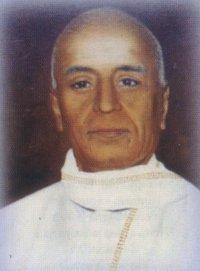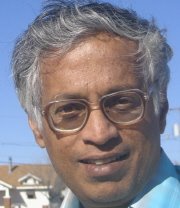Musiri, great Carnatic vocalist
Dr. K. Rohiniprasad


Musiri Subramania Iyer, one of the giants of Carnatic music of the twentieth century was born in 1889 in Bommalapalayam in Trichy district of Tamil Nadu. His father Sankara Sastry was a Sanskrit pandit of modest means. Inspired by the singing of S. G. Kittappa, the famous stage actor/singer, Subramania Iyer decided to become a musician. Taking up music as professional was risky those days unless one rose to the top. After receiving initial training from S. Narayanaswamy and the violinist Karur Chinnaswamy Iyer, Subramania Iyer became the disciple of T.S. Sabesa Iyer who belonged to Tyagaraja’s tradition. Manambuchavadi Venkatasubbayya, a close relative and disciple of Tyagaraja had trained eminent students such as Maha Vaidyanatha Iyer. Sabhesa Iyer was one of the direct disciples of Maha Vaidyanatha Iyer.
Subramania Iyer’s first recital at the age of seventeen in Trichy impressed the organisers who presented him with a gold medal. As he made his debut in
As a vocalist, Musiri specialised in the slow tranquil tempo of music. With a beautiful high pitched voice and perfect tonal purity Musiri was a great exponent who brought out the emotional content of the raga and the compositions. His neraval (spontaneous variations in the redering of the composition) was very appealing. His immortal melodies include "Nagumomu", "Pahi Ramachandra Raghava", "Thiruvadi Charanam.", "Entha Vedukondu Raghava" and others. Since he happened to be one of the few knowledgeable and highly literate musicians with good command over English, he was appointed the first principal of the Central College of Carnatic Music in 1949.
Musiri received several honours and awards were including `Sangeetha Kalanidhi' (Music Academy of Chennai, 1939), Fellow of the
A legend during his lifetime and after, Musiri remains a colossus in the world of Carnatic music even today since some of his recordings are available. He was also a great teacher who taught several disciples like Mani Krishnaswamy, T. K. Govinda Rao and K. S. Venkataraman who became good musicians in their own right.
Though a tradition-bound musician, Musiri played the lead in the Tamil film Tukaram in 1938, raising some hue and cry amongst the puritans of the day. Though the film is now lost, his songs are still popular. As a result of this experience he came to detest the people and the atmosphere associated with films. His wide circle of friends included eminent musicians like the vocalist Semmangudi, Budalur Krishnamurthi Sastri, the gottuvadyam vidwan as well as several doctors, lawyers, engineers and civil servants. They included ICS officers like S. Y. Krishnaswamy, C.V. Narasimhan and personalities like T. T. Krishnamachari, V. C. Gopalaratnam, V. L. Ethiraj, K. S.Jayarama Iyer, K.V. Krishnaswamy Iyer and other big wigs of
From the early 1930s until his demise in 1975, Musiri lived in Mylapore area in Chennai and the road has been named after him.


0 Comments:
Post a Comment
<< Home